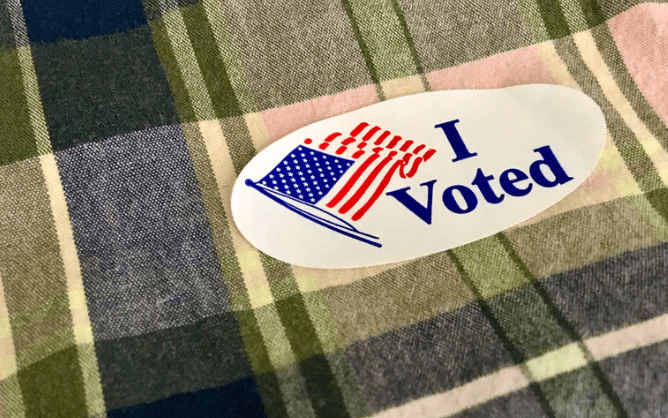While this fall semester looks and feels different, social distancing does not mean that we are socially distanced from the events of the world around us. In fact, it sometimes feels as though being socially distanced from one another amplifies the impact of the events in the world around us.
As we navigate the days and weeks after the Presidential election, we may find ourselves confronted with realities of this significant event even if we have not invited the election into our classroom. Our students may ask questions, discuss reports about the election, or share perspectives that we may not be prepared to guide an entire class through, especially in an online, asynchronous modality.
If you are concerned about how you will engage students in polite political discourse as we move through the post-election responses, you are not alone. Here are a few resources that you might find useful as you consider if and how you could include discussion of the election in your course.
The Students Learn Students Vote Coalition and Ask Every Student host a recurring virtual post-election gathering to discuss resources for campus stakeholders and faculty. Ask Every Student also provides a detailed Post-Election Campus Resource and Response Guide. The guide is broken into six key areas with suggestions and resources for each:
- Prepare partnerships ahead of time.
- Instill confidence in election results.
- Allow time and space for processing.
- Facilitate opportunities for healing.
- Hold spaces for dialogue and verbal expression.
- Move towards action.
One way you can better support your students in engaging in polite political discourse is to create and frame a space for them to express their thoughts in your Canvas course. If you have a class discussion forum – you may call this the class questions, class forum, water cooler, or in the halls discussion board in your Canvas course – you could start a thread specifically to discuss the Presidential Election. Remind students with the initial thread that this is a public space for students to share their thoughts in a collegial and respectful manner.
Maintaining civil discourse in an online environment is not a new concern and there are a lot of resources to help guide how you frame an online dialogue with students. Jean Dimeo’s 2017 article, “Keeping it Civil Online”, provides faculty-tested strategies. Alyson Klein’s more recent article, “Talking Civics in a Remote Classes in 2020: What Could Go Wrong?” contextualizes the challenges with online discourse to our current context. Plus, you can always reach out to CATL directly to share your ideas about how to frame a potentially charged conversation in your online class.
If the thought of an open discussion forum leaves you a little uneasy, you may want to direct your students to other resources. You could post an announcement or refer students who reach out to you directly to any of the following virtual events:
- Stetson University College of Law hosts a Post-Election Student Webinar on Nov. 5, 2020, at 5:30 pm ET.
- UW-Milwaukee’s Center for 21st Century Studies is hosting an Election Post–Mortem on Nov. 6, 2020, from 3 – 5 pm CT.
- Harper College’s Professional Advisors Committee Speaker Series presents Post Election Outlook 2020 on Nov. 12, 2020, at 10 am CT.
There are also resources on campus that can help students process their emotional response to the election. UW-Green Bay’s Wellness Center provides free counseling services for students and a variety of other resources related to wellness and mental health. Counseling is also available at the Manitowoc, Marinette, and Sheboygan campuses.
Every four years there is a significant political touch point that can ignite any classroom into incivility. Our goal as faculty is to foster polite political discourse. While that goal may seem more challenging in our current learning landscape, it is not impossible.
